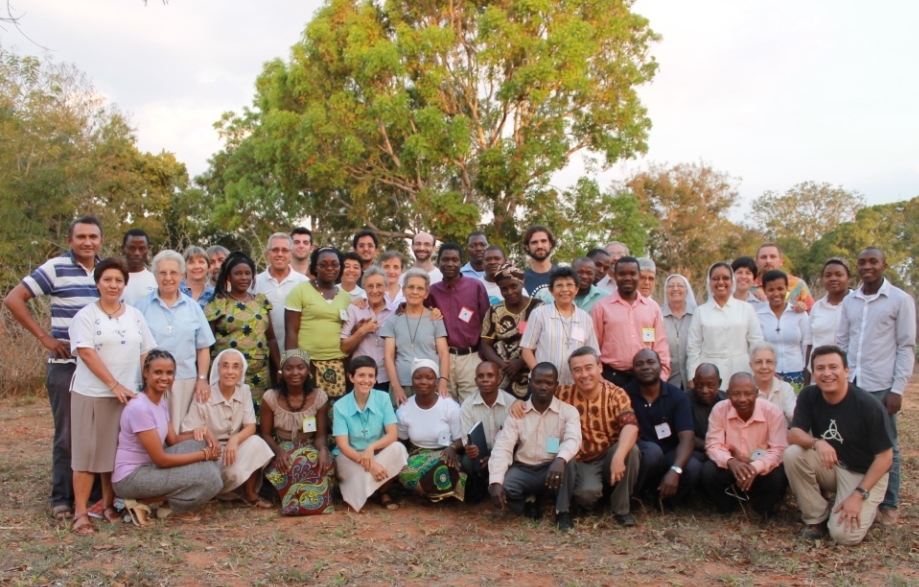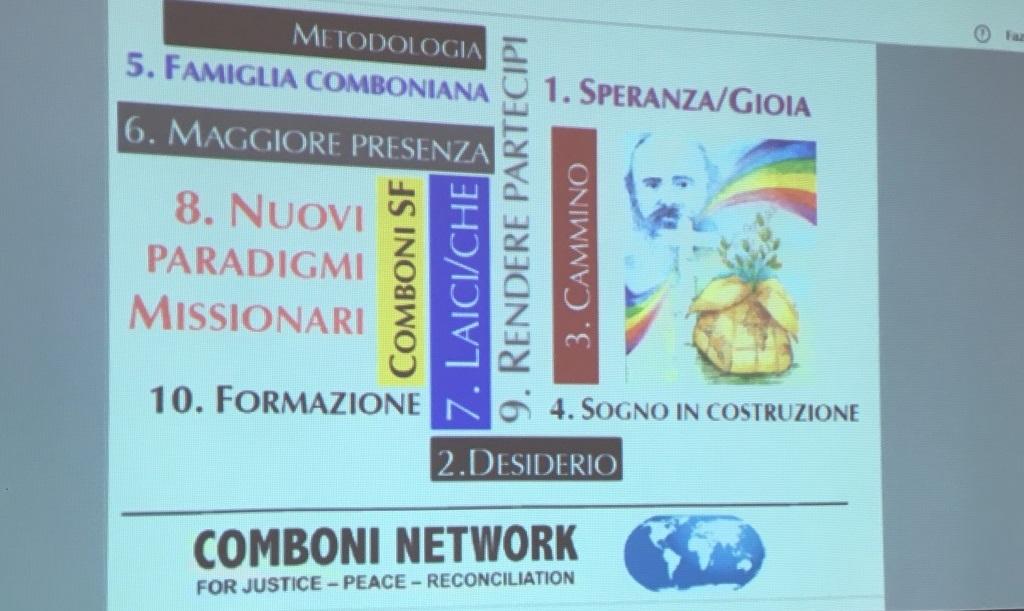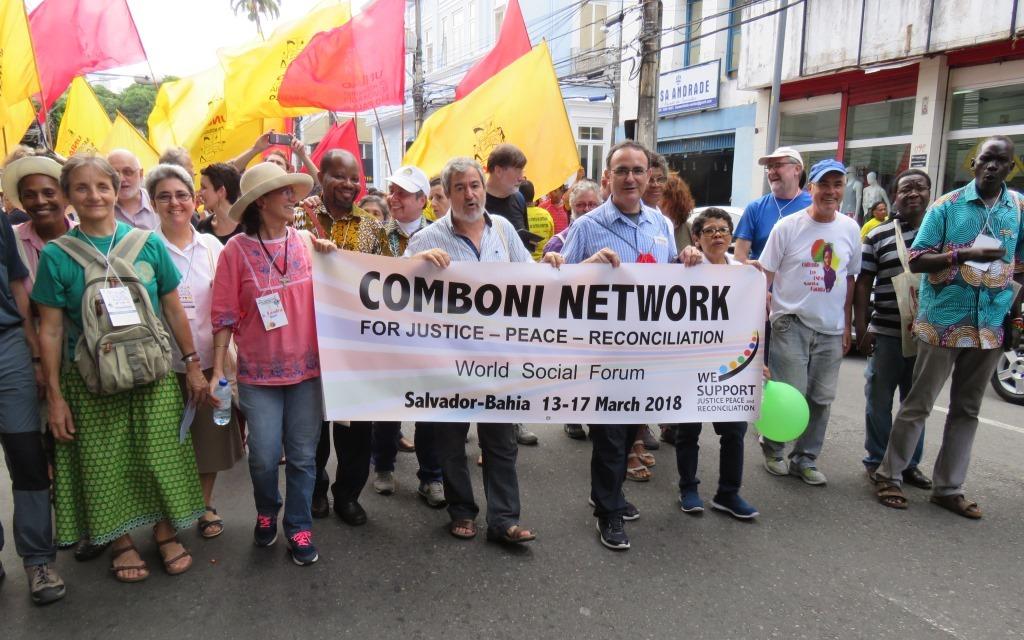Daniel Comboni
Comboni Missionaries
Institutional area
Other links
Newsletter
Monday, September 30, 2013
On September 4-7, Comboni Missionaries and Comboni Sisters of Mozambique and Brazil who are responsible for the sector of Justice, Peace and the Integrity of Creation (JPIC) held a seminar –open to other institutes and interested lay people – in the Mozambique city of Nampula, in order to share pastoral work experiences connected to the new forms of slavery. Fr. Dario Bossi, a Comboni missionary from Brazil, spoke on the conflicts over land ownership and on the social and environmental impact of mining. Comboni Sr. Clara Torres Acevedo, with her experience of work in Mozambique and in South Africa, developed the topic of human trafficking, especially where women and children are involved. The conclusion reached was that the JPIC pastoral, if it is going to be effective, must be done through networking at both the national and the international level.
The Comboni Family
is involved in a discussion on justice and peace
between Mozambique and Brazil
Anchilo/Mozambique, September 4-7, 2013
The Comboni Missionaries and Sisters of Mozambique and Brazil decided on a follow up to the reflection and to the commitment they took last April on the occasion of the Comboni Forum of Tunis.
The meeting in Tunis was the fourth gathering of the Comboni Forum, after Nairobi, Belém and Dakar. At that time, activities against human trafficking and against the plundering of the land and of common goods were taken as priorities.
Five months later, the Comboni Family and the JPIC teams of some dioceses of Mozambique had an exchange of experiences among themselves and a comparison with similar experiences in the North-East of Brazil.
Sixty two people in charge (religious of various congregations, leaders of Catholic communities, teachers in public schools and the two Comboni provincials) met in Nampula to discuss over the new forms of slavery and on the impact of mining activities.
At the same time in Rome, Card. Turkson, president of the Pontifical Commission of Justice and peace, was meeting with the presidents of the largest mining societies in the world, “in order not to repeat the serious errors of the past and to take decisions not solely based on geological perspectives or on the economic benefit of the investors.”
The large mineral mining projects leave behind a trail of devastation and violence in communities and territories. Similar methods of extraction are seen in the North of Brazil and in central Mozambique (enormous mines, railways stretching for 900 km and the two deepest harbors in the two continents). Hundreds of communities, on both sides of the ocean, become the victims of these promises of false development.
Also, the victims of human trafficking (interestingly, the majority of cases are happening where these large industrial projects are started) end up being attracted by false promises. It is mostly the case of young or adolescent prostitutes, of women and men recruited to work underpaid or in conditions of slavery, and also of children, kidnapped to feed the macabre traffic of human organs.
The Churches have a fundamental role in raising the awareness, in the prevention and denunciation of these abuses. The activity of the Comboni Missionary Sisters in Mozambique and in South Africa stands out for its effectiveness and presence among the people.
During the same days, when the seminar on human trafficking was being held in Nampula, the province of Portugal was tackling the same topic during its own meeting of JPIC. Faced with international violations and with the international organization of criminal structures or the lucrative activities of multinational corporations, it becomes necessary to have an exchange and a minimum of organization also between all the Comboni provinces that deal with these issues.
Other churches teach us: for instance, for years in South Africa the evangelical churches have been organizing in Cape Town the Alternative Mining Indaba, a large gathering of victims of mining operations, at the same time the yearly summit of the multinational mining societies takes place.
In Peru, this coming November, the preparatory meeting of “Religious of Latin America and mining activity” will be held, with the active participation of the Comboni JPIC team. The worldwide coordinating committee of JPIC of religious congregations carried out an extensive research on the commitment of religious to this topic and, surprisingly, it received more than 400 detailed responses.
New sources of study and commitment are made available to religious life, as we listen to the cry of the people. Comboni Missionaries and Sisters continue to listen to this cry and try to promote liberation.
The meeting of leaders in Nampula has created “territorial information agents” in order to discuss strategies of vigilance and of defense against trafficking in the various communities. It has also given new strength to activities against mining in view of another meeting of exchange of ideas next year on how to strengthen the resistance in Mozambique.
The Comboni Forum continues in the life and in the commitment of many brothers and sisters, dedicated to the cause of the Kingdom. Daniel Comboni continues to inspire the practice of liberation carried out by his missionaries.





